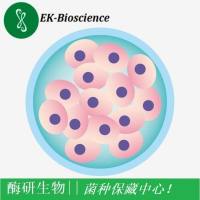Methods to Study Mitotic Homologous Recombination and Genome Stability
互联网
互联网
相关产品推荐

REXO4/REXO4蛋白Recombinant Human RNA exonuclease 4 (REXO4)重组蛋白Exonuclease XPMC2 Prevents mitotic catastrophe 2 protein homolog Short name: hPMC2蛋白
¥5268

HB Western blotting Principles and Methods
¥223

GSP1/GSP1蛋白Recombinant Saccharomyces cerevisiae GTP-binding nuclear protein GSP1/CNR1 (GSP1)重组蛋白Chromosome stability protein 17 (GTPase Ran homolog) (Genetic suppressor of PRP20-1) (CNR1) (CST17)蛋白
¥2328

灰色链霉菌/灰色链霉菌/IMAS Study Class M4.3
¥1500

Recombinant-Saccharomyces-cerevisiae-Mitochondrial-inner-membrane-i-AAA-protease-complex-subunit-MGR1MGR1Mitochondrial inner membrane i-AAA protease complex subunit MGR1 Alternative name(s): Mitochondrial genome-required protein 1
¥12474
相关问答

